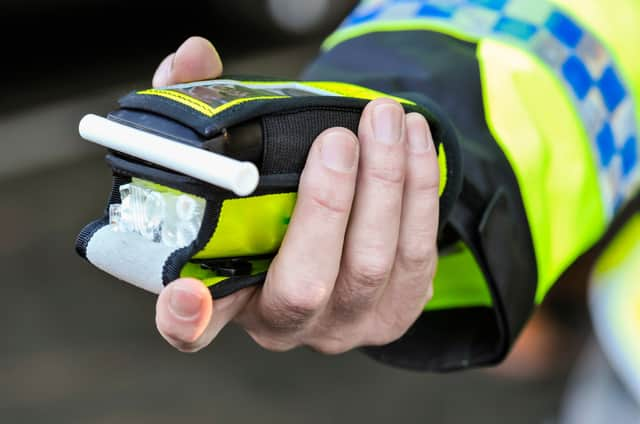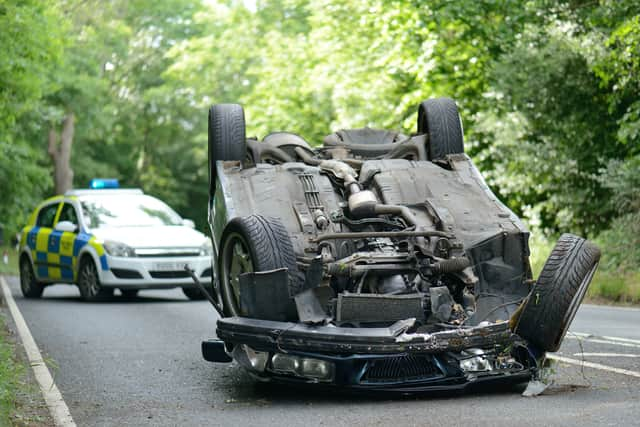Jump in serious drink-drive casualties a ‘chilling’ reminder of lack of progress


The number of people killed or seriously injured in drink-driving incidents rose eight per cent in 2019, according to the latest government figures.
Overall casualties of all severities fell by 10 per cent but the number of killed or seriously injured (KSI) in incidents where at least one driver was over the drink-drive limit reached 2,050.
Advertisement
Hide AdAdvertisement
Hide AdThe number of fatalities was given as 230 - down two per cent on 2018’s death rate but largely in line with statistics for the last 10 years. That means that 13 per cent of all road deaths involved a drink-driver.
The figures for Great Britain are based on police data and include a margin for reporting error which means the actual number could be as high as 250 or low as 210.


That means 1,820 people suffered what are classified as “serious” injuries in drink-drive incidents, pushing up the overall KSI total by eight per cent compared with 2018.
Nicholas Lyes, RAC head of policy, said the figures were “a rather chilling reminder that in the region of 250 people are killed by drink-drivers on Great Britain’s roads every year, a figure that’s barely fallen since 2010”.
Advertisement
Hide AdAdvertisement
Hide AdHe said that recent research highlighted the proportion of drink-drive cases involving repeat offenders and called for new solutions to tackle the problem.
He added: “Clearly much more needs to be done, and one area we’d like to see progress in is around cutting reoffending. A report by the Parliamentary Advisory Council for Transport Safety found that nearly one-in-five drink drive offences are carried out by repeat offenders, something that could be tackled with the introduction of alcohol interlocks.”
An interlock is a hardware device fitted to a car that functions in a similar way to a regular breathlyser. The system checks a driver’s breath-alcohol limit before they can start the car and if they are over the legal limit the car will be immobilised. From 2022 all new cars will have to include the wiring to allow their fitment.
Hunter Abbott, managing director of personal breathalyser firm AlcoSense and member of Parliamentary Advisory Council for Transport Safety, said that the figures were particularly worrying given a fall in the number of roadside breath tests being carried out by police.
Advertisement
Hide AdAdvertisement
Hide AdHe commented: “The fact that testing is at its lowest level on record should be ringing alarm bells. Police carried out just 285,380 roadside breath tests in England and Wales in 2019 – less than half the number in 2008.
“All convicted drink drivers in Northern Ireland are now automatically referred to a rehabilitation course – to educate them on the potential consequences of their actions. This should be introduced in the rest of the UK as soon as possible.”
Campaigners have repeatedly called for the Government to take more steps to tackle drink driving. While the number of drink-drive fatalities is 39 per cent lower than in 2009 and the total KSI is down 22 per cent, there has been little significant change since 2010, when 240 deaths and 1,480 KSI were reported.
Comment Guidelines
National World encourages reader discussion on our stories. User feedback, insights and back-and-forth exchanges add a rich layer of context to reporting. Please review our Community Guidelines before commenting.
